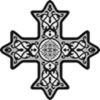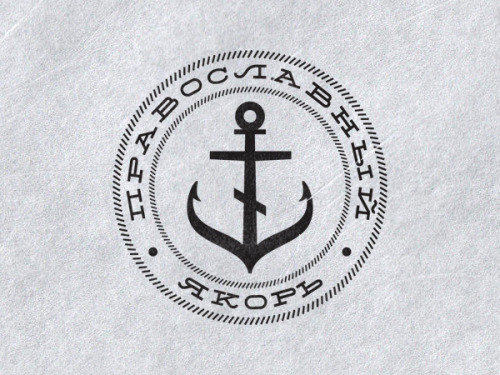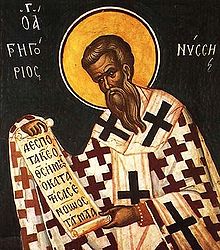elionberger
Hermit
 Orthodox Church of Korea
Catechumen
Orthodox Church of Korea
Catechumen
Posts: 65
|
Post by elionberger on Sept 18, 2012 5:02:28 GMT 2
I was searching around on the internet and came across this blog that struck me. Usually, I try to steer clear of things like this but this one caught my eye. This blog is written by a Baptist from Oklahoma, USA and this person traveled to Jerusalem. In his accounts he claims that the Orthodox Church and Catholic Church are guilty of paganistic rituals, etc. Here is a quote from the blog: The next few sites were somewhat confusing. The Catholic and Eastern Orthodox Church have so corrupted the places and events of the crucifixion and resurrection that it is difficult to see the real story through all the paganistic ritualism. The Catholic Church has concocted twelve stations of the cross, describing twelve distinct events that they say happened on the way to the cross. Many of these have no basis in Scripture whatsoever, and others are incredible superstitions that have been developed down through the years. For instance, three of the stations are places along the road where they say that Jesus stumbled and fell. The first of these has a place in the wall where they say Jesus placed His hand when He fell. I don't buy into what he's preaching but I would like to hear other people's thoughts on this matter. Sometimes, when I hear a story about a miracle, for instance, or, when I first heard about the holy fire in the Church of the Holy Sepulcher, I was skeptical. And I still hold a bit of skepticism . . . I'm interested in what you have to say about this... |
|
|
|
Post by JamesfromTA on Sept 18, 2012 5:44:10 GMT 2
I have gotten into debates with heterodox over similar things; the ones I debated were Pentecostal and were arguing that the use of the Holy Tradition in the Orthodox Church blocks out God (well, it was a statement used as a back handed compliment to me on hearing about my conversion) so I guess the ideas here are similar.
A lot of it with the protestant sects is that their tradition was created by man in the 1600's as were their practises and so when faced with practises that are much older (with the exception of the stations of the cross as that never appeared in its current form until the 15th century) or the Holy Tradition it seems alien to them, it goes against what they think is orthodox and they reject it without proper investigation.
I think a healthy scepticism is fine; I've heard stories from monks and read from the Fathers that if an angel comes to you to ignore it because it's better for you to reject an angel than to accept a demon by mistake. That said, I would say that where this baptist preacher is speaking from is not a place of scepticism but from a place of ignorance when faced with Orthodox Christianity.
|
|
|
|
Post by OrthodoxBrit on Oct 4, 2012 23:37:13 GMT 2
I have just seen this thread and have to jump in.
I find it interesting that he says " The Catholic and Eastern Orthodox Church have so corrupted the places and events of the crucifixion and resurrection that it is difficult to see the real story through all the paganistic ritualism" when no Protestant would know about it without the Church putting together the Biblical Canon and evangelising Europe, Asia and Africa. If anything, they should be thanking us for this 2000 year old Tradition still existing, not condemning it and demanding we replace it with their 500 year old ones. Logic dictates that the truer form of Apostolic Christianity would be the one passed on from the Apostles, not from Luther 1500 years later.
Also he is making it sound like these rituas did not exist in the Early Church when we know that Pilgrimage, use of Incense, the sacraments and processions existed before the Biblical Canon itself was put together, so this claim that there was a Pre-Church Christianity does not work one bit. I often hear that same argument from Pentecostal pupils at my work, though when they learn Church history they tend to understand how Scripture is part of tradition and not something that Church Practices are seperate from. Basically this image which many of these groups have of a "New testament church" which mirrors theirs is complete fiction and the constant use of the claim shows nothign but their lack of reading on the subject of Christian history.
As for your doubting miracles, that is fine. Most people on here know that I do not believe in the Holy Fire Ritual. It is not a tenant of the Faith to believe any modern miracles and believing them does not make you any more or less Orthodox than anyone else in the same way that I would not condemn anyone for not believing in th miracles of Pope Kyrillos. Do not worry yourself about accepting miracles, it is not as important as understanding the faith.
|
|
|
|
Post by timotheos on Jan 29, 2013 22:06:46 GMT 2
My usual response to heterodox claims is laughter. Loud and hearty laughter.
As well, the Baptist gentleman is mistaken: there are 14 Stations of the Cross, not just 12. While the "Stations of the Cross" are not mentioned in the Orthodoxy, they are simply artistic renderings of the last segments of Christ's life- ALL of which are mentioned in the Scripture.
If this man wants to write off Orthodox and Catholic practices as "paganistic ritualism", then he would be saying the same of the earliest Christians, who received their instruction from Christ himself and the Apostles. Orthodoxy is validated by a long history of Holy Tradition, maintained through unbroken apostolic succession, which is more than the Baptist churches can say for themselves.
I tend to be skeptical of certain miracles, but I do believe they occur.
|
|
|
|
Post by digitalpapist on Feb 26, 2013 19:20:57 GMT 2
There's this persistent idea among many evangelicals or fundamentalists that their traditions are not traditions but unobjectionably true. Their entire method of ecclesiastical structure, authority, and their reading of Scripture is obviously a tradition, but boy do they get angry when you point that out.
Modern atheists actually have this exact same problem, but that's another discussion.
They cannot understand that for Catholics (and I will assume the Orthodox as well) Scripture cannot be separated from Tradition; it's like separating a child from his mother.
It's the assumption that 16th century traditions embody 1st century realities and that true 1st century traditions are truly pagan.
|
|








